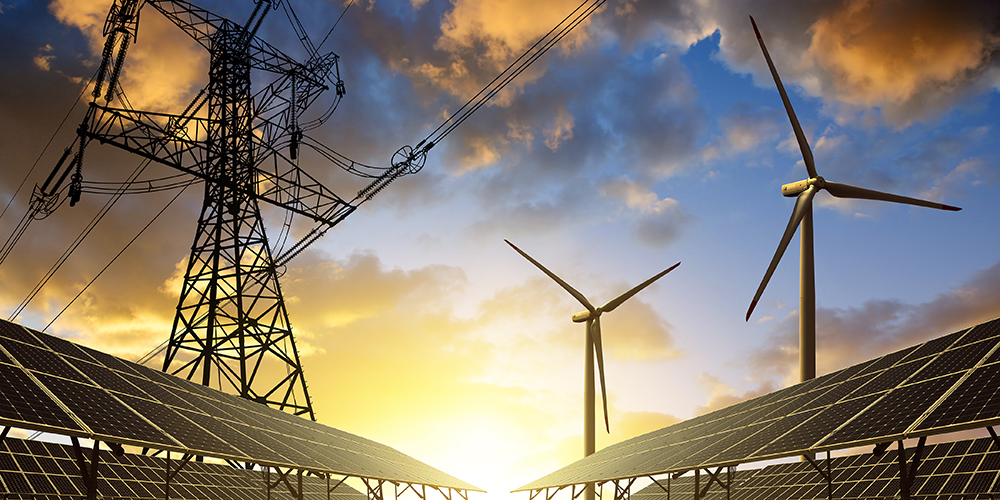
Energy is central to our society, now more than ever. Our economy and way of life rely on access to affordable, reliable power. Whether for transportation, heating, manufacturing, or lighting, energy systems are critical infrastructure.
As we transition from fossil fuels to sustainable energy, every aspect of how we generate, distribute, and secure the energy that powers our lives is changing rapidly. Ensuring that we have reliable generation and distribution systems is key to our economic stability and strength. At the same time, the need for greenhouse gas reduction and energy equity, and the impacts of climate change on infrastructure are increasingly urgent concerns.
Energy systems engineers help address some of these pressing issues facing humanity. We must transition our complex and varied energy generation and distribution systems quickly as we transition to an electricity-based world.
Engineers who understand how energy is generated, stored, managed and delivered are in very high demand. They use their technical ingenuity to create and implement new technologies that impact every part of our lives, including designing and deploying:
- EV charging infrastructure
- advanced wind and hydroelectric turbines
- small modular reactors for nuclear energy
- grid-scale energy storage for wind and solar power
- new technologies to reduce the impacts of fossil fuel extraction, refining and use
- and more

In EngSci's Energy Systems Engineering major, students learn to tackle urgent technical issues in energy generation, storage, transmission, and distribution, while gaining an understanding of environmental, public policy, and economic impacts.
The curriculum develops experts for the energy sector and beyond through fundamental technical training in multidisciplinary courses. Topics covered include clean energy, sustainability, thermodynamics, nuclear energy, control systems, and electric drives.
The major provides the breadth, depth, and interdisciplinary knowledge required in this exciting field. Students learn to evaluate tradeoffs between different traditional and alternative technologies, explore technical aspects within a societal context, examine links to conservation and sustainable development, and gain a rigorous foundation relevant to many energy topics.
Courses are taught by renowned faculty members from the Departments of Mechanical & Industrial Engineering, Electrical & Computer Engineering, Chemical Engineering and Applied Chemistry, and U of T's Institute for Sustainable Energy. An exciting new development in the Toronto area is the establishment of the new NRC Advanced Materials Research Facility, where energy researchers will be engaged with clean energy research.
The Energy Systems Engineering major meets the growing need for more experts in this field in Ontario, Canada, and around the world. It prepares graduates for exciting careers in technology development, energy companies, and policy agencies in areas as diverse as designing new electricity markets to enable the shift to 100% sustainable generation; planning future electricity grids to power greenhouses and other facilities with renewable and nuclear generation; and boosting efficiency from the megawatt (industry/commercial/grid) to milliwatt (power electronics) level.
Graduates have gone onto specialized technical research careers, systems engineering in energy distribution companies, and have specialized in energy policy with career trajectories in government.
FAQs
Did you know...?
Students can explore energy topics in student clubs like IEEE's U of T Branch and the Sustainable Engineers Association.
Sample Courses
Clean, sustainable and renewable energy
Nuclear energy
Other topics
Where this major can take you
Graduates have internationally unique training with the depth and breadth required to seamlessly pivot within academia, industry, and government. Meet some of our alumni.
Employers for recent graduates include Boston Consulting Group, Hatch, Independent Electricity System Operator, Ontario Power Authority, Shoppers Drug Mart, Toronto Hydro, and others. Some are also working in energy policy in government agencies and consulting groups.
Recent alumni have attended graduate school at Johns Hopkins University, MIT, Stanford University, U of T, UC Berkeley, and more.
Read one energy systems student's journey from undergraduate researcher to MIT graduate student.
Chair of the Energy Systems Engineering major
Professor Zeb Tate (ECE)
Professor Tate’s research focuses on combining advanced telemetry, data processing, and visualization techniques to facilitate renewable integration and improve the reliability and efficiency of the power grid.
